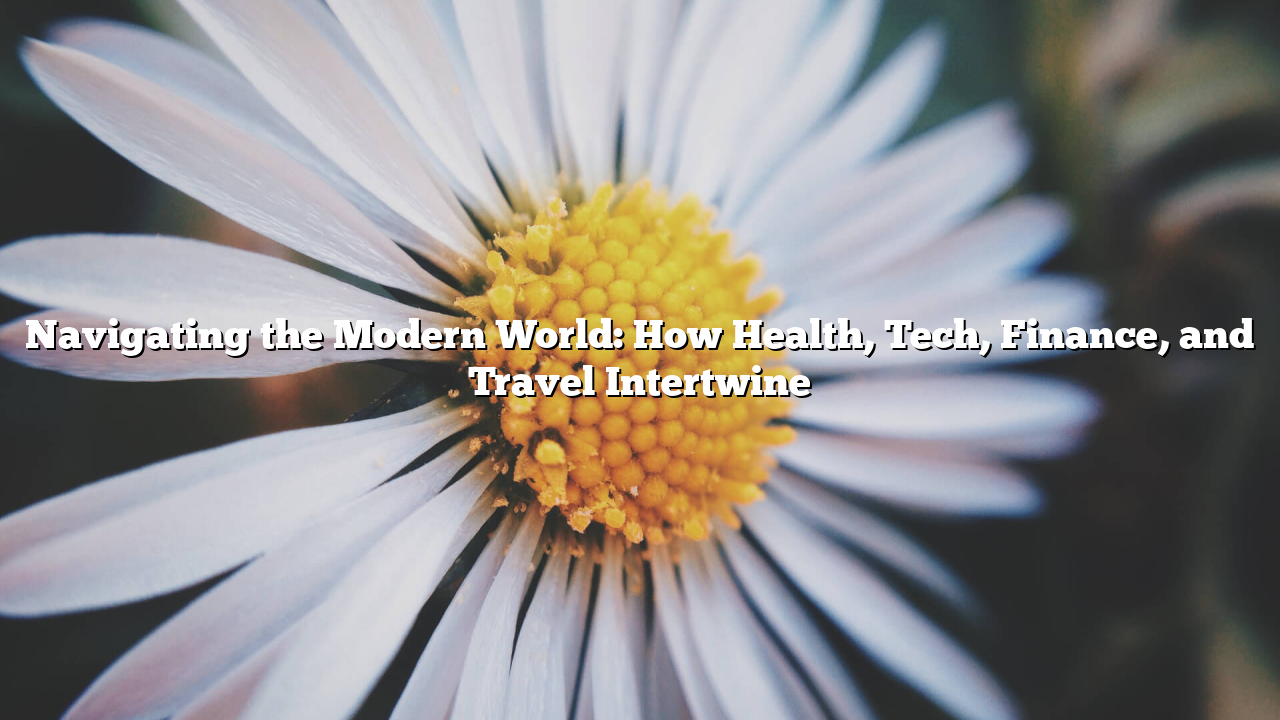In today’s fast-paced world, comprehending the connection between health, technology, financial planning, and exploration is more important than ever. These four areas influence our daily lives in profound ways, and their integration is shaping the future.
Health in the Digital Age
Health is no longer just about eating well and exercising. PBOWIN to innovation, we now have smart devices that monitor our vitals in real time.
Smartwatches like the Apple Watch or Fitbit enable people to monitor sleep quality, and even detect potential health issues. Virtual consultations, once a novelty, has now become mainstream—especially post-pandemic—letting patients consult professionals from home.
Psychological well-being is also receiving renewed attention. Apps like Calm and Headspace help users cope with stress and anxiety, showing tech can aid emotional wellness too.
The Role of Technology: Beyond Gadgets
Technology is the backbone behind most major innovations. It touches everything from our interactions to how we manage businesses and health.
In finance, fintech apps are transforming how we make decisions. Automated investing tools like Betterment and Wealthfront provide financial advice with minimal human intervention.
Cloud computing also plays a role in health and travel. AI can diagnose diseases faster than doctors, while big data helps airlines optimize routes.
In short, technology isn’t just about gadgets—it’s about smarter living across sectors.
Finance: Digital and Dynamic
The way we handle money has changed dramatically in the past decade. Traditional banks are challenged by neobanks and mobile platforms like Revolut and Chime.
Cryptocurrencies such as Bitcoin and Ethereum have reshaped the financial sector, providing decentralized options for those who want to go beyond traditional stocks and bonds. Meanwhile, budgeting apps like YNAB and Mint help individuals take control of their finances.
Moreover, the need for money management skills is at an all-time high. People now seek resources on debt management through online courses and YouTube channels. The accessibility of financial info means more people can achieve financial independence.
Smart Travel in a Connected World
Travel isn’t what it used to be. With the help of technology, we can plan trips through apps without ever visiting a travel agent.
Apps like Google Maps, TripIt, and Airbnb simplify trip planning. Virtual reality allows travelers to preview destinations before committing.
But there’s also a shift toward sustainable tourism. People are more aware of their environmental footprint, choosing carbon-neutral travel packages when possible.
Work-from-anywhere culture has also given rise to the “digital nomad” lifestyle, where individuals work remotely while exploring. Destinations like Bali, Lisbon, and Medellín have become hotspots for freelancers seeking adventure.
The Lifestyle of the Future
What’s fascinating is how these four pillars—health, technology, finance, and travel—coexist and support one another.
Imagine using a smartwatch to monitor your heart rate while traveling, paying with cryptocurrency in a foreign country, and consulting your therapist online—all in the same day. That’s not the future; that’s happening now.
These trends indicate a world where personal empowerment is driven by access to information, seamless digital experiences, and freedom of mobility. And the lines between each sector are becoming increasingly blurred.
In Summary
The world is changing fast. Technology is enabling us to be healthier, more financially savvy, and more globally connected. Travel is no longer a luxury, but a lifestyle, supported by digital tools and financial platforms.
As we move forward, the secret to thriving will be to stay informed, adaptable, and intentional in how we use these tools. Whether you’re a tech enthusiast, a health-conscious individual, an investor, or a traveler—there’s never been a better time to embrace the future.
